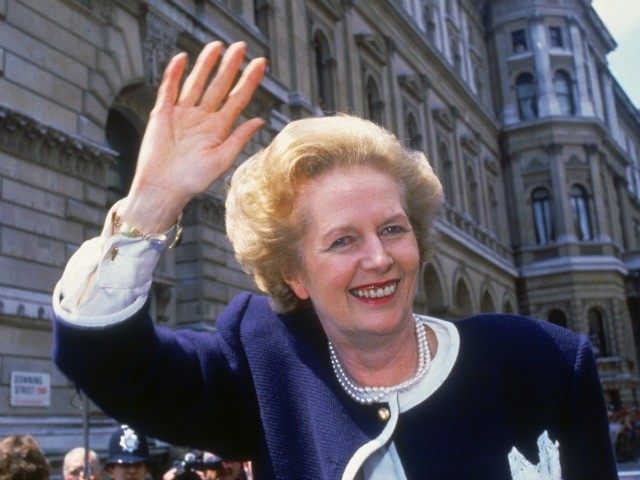Some will say the relentlessly left wing and snobbish attitude of British universities is a recent phenomenon, but the story of Margaret Thatcher’s snub from the University of Oxford shows otherwise.
A lot has been written about the ideological purity of British universities recently. As Nigel Farage wrote for Breitbart London a university should be “a place where young people can expand their minds, be exposed to a whole range of arguments… it must be fundamental that students should be exposed to both sides of every argument.”
In part Farage was writing about the group, Universities For Europe. This is a europhile campaign group launched in July wedded to the proposition that the “UK’s membership of the European Union (EU) enables and enhances universities’ positive impact on individuals, the economy and society. EU membership enhances university research and education which in turn benefits British people.”
The group’s aim, ahead of the British EU referendum, is “to promote the value of European Union membership for the higher education sector” by campaigning “across the country with powerful evidence and compelling stories, in the media, through public events, and working with partners across the university sector and beyond.”
That would be perfectly acceptable if there was a counter-argument being made to the group’s propagandistic efforts. But of course no such group exists.
Worse, the group is actually part of Universities UK, the body under which it will campaign. It is an advocacy group which defines itself as the “definitive voice” of the universities sector, representing senior leadership at the institutions.
That such a group would take a reflexively pro-EU line is not really surprising. Even if you had no contact with university Vice Chancellors and their colleagues you can tell what they are like from their product – the students who seek to gain positions of authority below them.
As Breitbart London‘s Liam Deacon has explained at length, Britain’s universities are hotbeds of censorship. From the comparatively minor act of banning comedy sombreros (racist), through banning a magazine dedicated to free speech (offensive), up to actually banning an ex-Muslim from addressing a Secularists and Humanists Society (highly inflammatory) any suggestion that universities are havens of free expression is clearly wrong.
However, these attitudes are not new.
The authorised biographer of Baroness Thatcher, Charles Moore, has produced volume two of his work on her life – “Everything She Wants“. In it he describes how her opponents within academia conspired to deprive her of an honorary degree from the university at which she studied. Moore explains:
When she received the official invitation to allow her name to go forward for the degree, she also got a letter from the Conservative historian Robert Blake, who was Provost of the Queen’s College, Oxford. He said how delighted he was, and told her not to worry about the proviso that a vote on the matter might be taken in Congregation (that is, among all the university’s academic staff): “it is conceivable that some left-wing don might mount a challenge. I personally think it is very unlikely, but I might be wrong. I am confident, however, that if there were a vote, you would win it.”
Her principal private secretary, Robin Butler, was not so sure. He wrote a note accompanying Blake’s letter warning her that “left-wingers in the university will take the opportunity of running a campaign against you before the vote in Congregation”.
He advised her to reconsider the invitation at a later date but she said, “Robin, if Oxford wants to confer an honorary degree on me, who am I to make terms about it?” In her letter of acceptance, she said that the proposal gave her “the greatest pride and pleasure”, which was true.
Her opponents won the day.
What should have been a formality, and as Moore points out would doubtless have been so were the first female Prime Minister of the United Kingdom anyone other than Margaret Thatcher, ended up being voted down 738 to 319. Butler says “the degree of hurt was huge”.
Not only did the academics resent her politically, but also socially – “Those who supported the honorary degree thought that the dons who voted it down were resentful of the loss of their privileged status in society as intellectuals automatically deferred to and subsidised by governments and saw Mrs Thatcher as a parvenue.”
Only British universities would take pride in academics looking down on a person of humble origin who has gained wealth, influence, or celebrity. It is exactly that attitude persisting to this day which prompts their Europhile intrusion into the referendum debate.

COMMENTS
Please let us know if you're having issues with commenting.